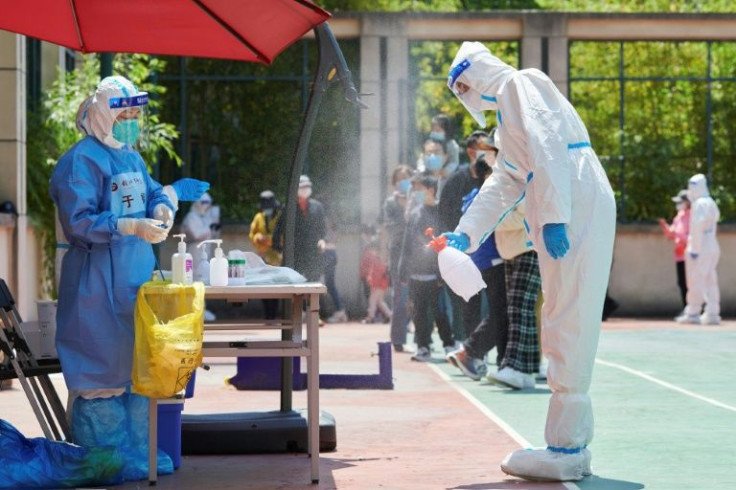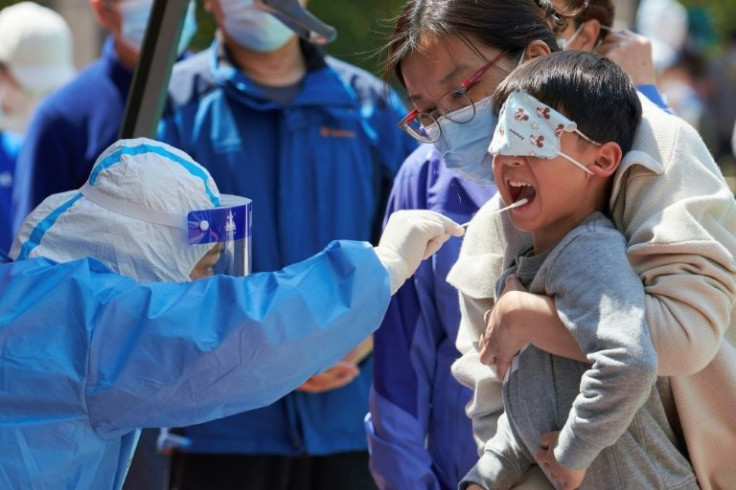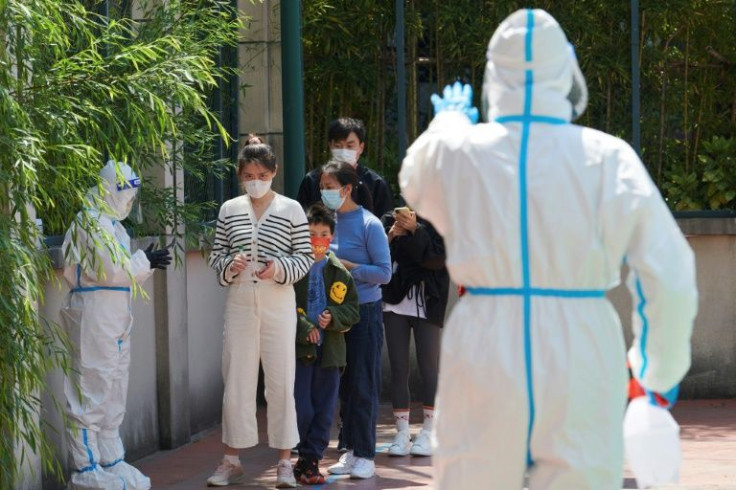Shanghai Reports First Covid Deaths Since Start Of Lockdown
China said Monday that just three people have died from Covid-19 in Shanghai since a gruelling lockdown began last month, despite recording hundreds of thousands of cases of the fast-spreading Omicron variant in the eastern megacity.
Authorities said the first deaths from China's biggest outbreak since the virus wave in Wuhan over two years ago were three people aged 89 to 91, all of whom had underlying health issues and had not received Covid vaccines.
Beijing insists that its zero-Covid policy of hard lockdowns, mass testing and lengthy quarantines has averted fatalities and the public health crises that have engulfed much of the rest of the world.

But some have cast doubt on official figures in a nation with low vaccination rates among its vast elderly population. Shanghai health officials noted Sunday that less than two-thirds of residents over 60 had received two Covid jabs and less than 40 percent had received a booster.
Unverified social media posts have also claimed unreported deaths -- typically before being scrubbed from the internet. Hong Kong, meanwhile, has attributed nearly 9,000 deaths to Covid-19 since Omicron first surged there in January.
The three reported victims in Shanghai "deteriorated into severe cases after going into hospital", according to a government account, with city health official Wu Qianyu telling a Monday press conference that "underlying disease" was the direct cause of death.

The eastern business hub has simmered under lockdowns since March, with many of its 25 million residents confined to their homes as daily caseloads have topped 25,000 -- a modest figure by global standards but virtually unheard of in China.
Many inhabitants have flooded social media with complaints of food shortages, spartan quarantine conditions and heavy-handed enforcement, circulating footage of rare protests faster than government censors can delete them.
But officials have vowed to continue isolating anyone who tests positive regardless of whether they show signs of the disease -- with asymptomatic infections accounting for nearly 90 percent of the more than 22,000 new local cases on Monday.

China last reported new Covid-19 deaths on March 19 -- two people in the northeastern rustbelt province of Jilin -- the first such acknowledged deaths in more than a year.

China's ruling Communist Party has touted its hardline pandemic approach as proof that it places human life above material concerns -- unlike many Western democracies, which it argues have sacrificed lives by failing to stop the virus.
Beijing has also acknowledged that dropping restrictions could let the pathogen run amok through its under-resourced healthcare system, potentially causing millions of deaths -- particularly among the elderly, who are at risk of developing more severe disease.
But experts say political considerations are also at play, with the party staking popular legitimacy on crushing emerging outbreaks in a year that will likely see President Xi Jinping secure a precedent-busting third term in office.
"This is a sensitive and critical year for the regime," said Lynette Ong, associate professor of political science at the University of Toronto.
"China has always given so much prominence to social stability, and a health crisis is a potentially big disrupter."
Those concerns may have motivated officials in Shanghai to zealously implement curbs "to the point that it becomes silly", even as the highly transmissible Omicron strain refuses to be quelled, Ong said.
Videos on social media have illustrated creeping public desperation, with clips showing residents scuffling with hazmat-suited police and bursting through barricades demanding food.
Internet users have also blasted the filmed killing of a pet corgi by a health worker and a now-softened policy of separating infected children from their virus-free parents.
The United States Embassy in Beijing said Monday it had "reconfigured operations" to assist more than 40,000 Americans in its Shanghai consular district.
Chinese officials accused Washington of making "groundless accusations" about its Covid policy earlier this month after the surge prompted the consulate to evacuate non-essential staff.
© Copyright AFP 2024. All rights reserved.





















